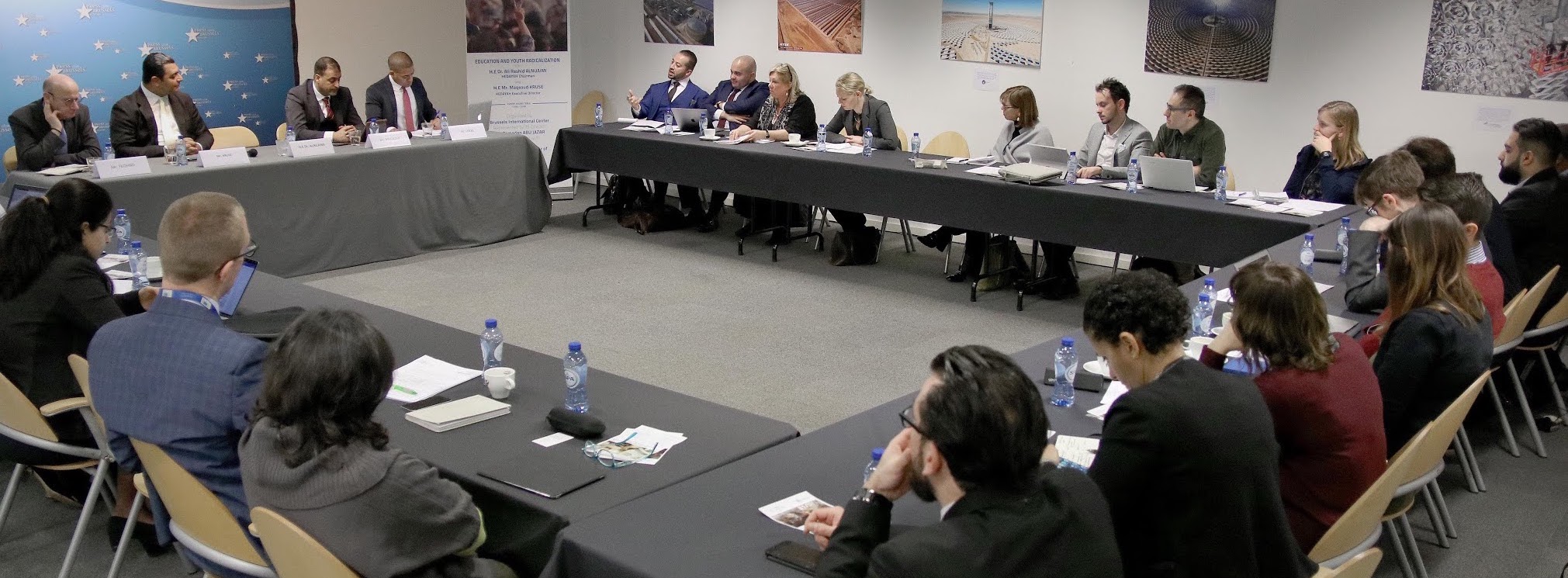BIC Expert Roundtable in Partnership with Hedayah, held on 31 January 2018 at the Press Club, Brussels
On 31 January 2018, the Brussels International Center held an expert round-table discussion in partnership with Hedayah, the International Center of Excellence for Countering Violent Extremism, to discuss the complex role of education in preventing youth extremism. The interactive dialogue brought together 20 experts from organisations including the European Commission, the UN Peacebuilding Liaison Office, the European Parliament Research Service, the Radicalization Awareness Network (RAN) and other civil society organisations, to constructively discuss the evolution of radicalisation and debate best practices.
Keynote Speaker:
-
• Mr. Maqsoud Kruse, Executive Director of Hedayah

Outcomes and Recommendations:
In his opening remarks, Mr. Kruse highlighted the need to foster critical thinking, what he calls “the awakening of the intellect to study inself,” to help build resilience to extremist ideologies. He suggested that experts shouldn’t focus on ‘countering’ narratives, which assumes a defensive position, but instead lead by providing alternatives. He focused on the challenge presented by oversimplified extremist narratives, emphasizing the need to embrace tolerance, multiculturalism, multiple identities, and understanding as the key to rejecting radical beliefs.
Participants then engaged in a constructive discussion on the differences in formal, non-formal, and informal education, and the various ways in which each can provide youth with a purpose that counters pull factors leading to radicalization. Experts considered the psychological dynamics of radicalization, and then debated practical solutions to provide youth with constructive outlets, such as service learning and volunteering.
Participants from Radical Awareness Network (RAN) and Ceapire shared their experience working on radicalization in Belgian schools, and debated the role of education and community in creating various levels of identity, as well as the importance of creating counter-narratives to resist negative or extremist ideologies. This was followed by a discussion on the geopolitical role of marginalization and discrimination on radicalization, and the need to provide youth with non-violent ways to affect political change.
Link to full event report, "Education and Violent Extremism: Teaching Youth to Think Critically for Themselves".




